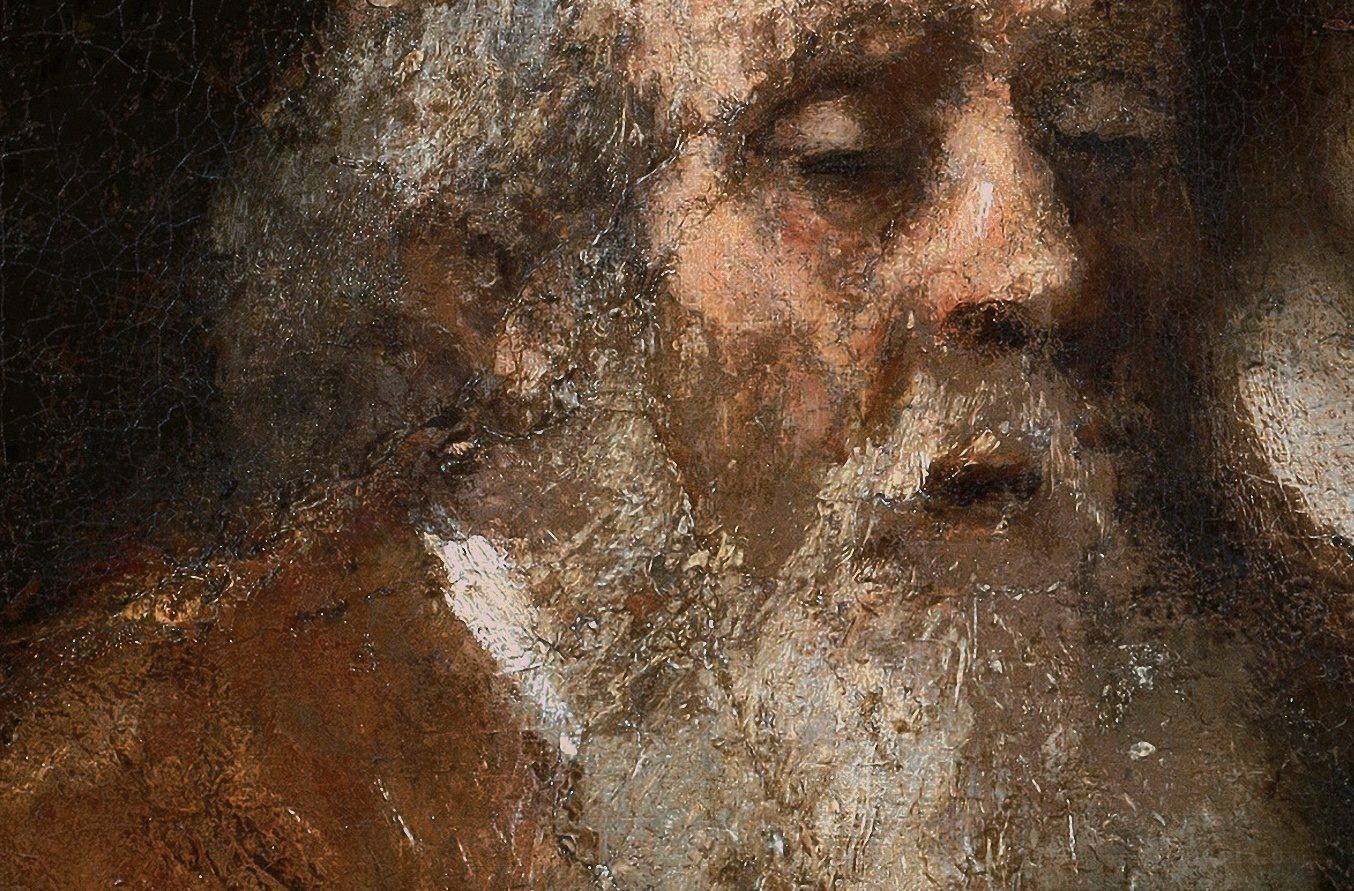Sermon on Simeon’s words of praise in the temple (Luke 2:29-35)

“Master, now you are dismissing your servant in peace, according to your word; for my eyes have seen your salvation, which you have prepared in the presence of all peoples, a light for revelation to the Gentiles and for glory to your people Israel.” (Luke 2:29-32)
“My eyes have seen your salvation!”
When Mary and Joseph entered the temple in Jerusalem, carrying the baby Jesus in their arms, they hardly expected a welcome like this.
Of course, Mary had heard many times now that her son was special – that he was to be the savior of the world. Already shortly after the birth of Jesus, Mary’s room was full of people like the wise men, who wasn’t exactly invited, but came anyway, as they were led there by hope and signs.
And now this guy in the temple comes up to Mary and talks about salvation as he tells her that her Child is appointed to cause the rise and fall of many in Israel. Simeon is his name, a righteous and devout man, led by the Holy Spirit. And now, as he sees the baby Jesus in Mary’s arms, Simeon praises God: “Lord, according to your word, you may now dismiss your servant in peace, for my eyes have seen your salvation”.
Simeon affirms what the prophets had already promised. The promise made to Isaiah – that all flesh would see the glory of the Lord (Isaiah 40:4) – had been repeated when John the Baptist in the dessert proclaimed, that all flesh would see God’s salvation (Luke 3:6).
A promise of seeing God’s glory. A promise of seeing God’s salvation. The promises are the same. Seeing God’s glory means seeing his salvation. And now Simeon proclaims that the promise has been fulfilled.
Apparently Simeon has been waiting for this moment – perhaps for his whole life. With the prophets he has waited for the Messiah who would bring the salvation of God to all peoples. And now he has seen it. Not just heard of it. No, Simeon sees the salvation of God, and knows that now he does not need to wait any longer.
We are used to thinking of sight in metaphorical terms. We can, so to speak, ’see’ the truth. Or, if we are ignorant and blind, we say that we can’t ‘see’ the truth. But in the case of Simeon, seeing God’s salvation is not just a matter of metaphor. Simeon actually sees the salvation of God, in a very concrete sense. He sees Jesus – and seeing Jesus means seeing God. Jesus is in himself the salvation of God.
Simeon’s words first of all proclaim joy. There is, however, also a warning added. This child, says Simeon, is “appointed to cause the rise and fall of many in Israel”. The rise – and fall of many. A sign that would be spoken against. Jesus would become a stumbling block, as Paul puts it in one of his letters. A stumbling block for the religious elite, who would eventually reject Jesus and turn against him.
Religious authorities may seem gentle and loving – until the moment when they are contradicted. When the religious authorities meet contradiction, this is when the “thoughts of their hearts” are revealed. When salvation is proclaimed to come not through the hierarchies and practices of religion, but directly from God, this is when it becomes clear whether the religious – and this also includes you and I – regard salvation as their own private property, not to be shared with others, or whether they are ready to receive it from God as a gift on equal footing with all those, who does not have a place in the religious hierarchy.
Even though Jesus is the salvation of God revealed for all peoples, this salvation leads to the fall of those religious elites who rejected him. This is not to say that he wasn’t also their savior as well. But it means that the salvation of God sometimes works by tearing down, by negating – even by destroying. Salvation sometimes works through contradiction.
The religious elites of Israel had to fall, so that all nations could see that God’s glory wasn’t confined to them, but that his salvation reaches to all people. Nevertheless, exactly by being a light of revelation for all nations, Jesus becomes the glory of God for Israel – even if Israel’s rejection of Jesus would case it’s downfall.
Keep in mind that all this is said on a bright background – indeed the brightest of all backgrounds: The proclamation of God’s salvation for all people. My eyes have seen your salvation, says Simeon. In a way, Simeon here pronounces a name over Jesus, who is called ”salvation”. In fact, the Hebrew name Yeshua means ”savior”. It is Jesus himself who is the salvation of God and ”a light for revelation”.
“A light for revelation”. The word of God is the true light who lights up every human being, says John in his gospel (John 1:9). It was he who had come into the world. It was this light, who Simeon recognized and perceived clearly.
What Simeon saw that day was that Jesus was himself the word of God, who had come to us. Simeon, by seeing the baby Jesus, has seen God himself. This was not, of course, because Simeon had some inherent superpowers that made him stand out from everyone else. No, he saw God in Jesus because the Spirit of God gave him eyes to do so. When God wants us to see his salvation in Jesus, we will.
Of course, the salvation of God is there whether we see it or not. But when we see it, seeing brings joy – if it doesn’t, it’s not the salvation of God that we see. The sight of God’s salvation does not leave us unaltered. Seeing God’s salvation means taking part here and now in what Jesus is doing for the whole world.
Seeing God’s salvation – as when John said that “all flesh would see God’s salvation” – is not just a matter of observing something from a distance, as if God’s salvation could take place without being a salvation of and for someone. No, seeing God’s salvation means taking part in God’s salvation, it means being taken up and being drawn into the history of redemption in Jesus Christ. This is what it means that “all flesh shall see the salvation of God”, as all that is dead will be made alive in Jesus Christ.
This is why Simeon can personally rejoice in hope as he sees the salvation of God. It is not just that he perceives that Jesus is savior – for someone or perhaps no one in particular – in a way where it is still unclear whether Simeon gets to partake in this salvation himself. No, Simeon sees in Jesus the salvation that God has “prepared in the presence of all peoples”, for all “flesh”, and thus also for him.
For all people.
For us – you and me.
Let us pray today, that God will also grant us the sight of his salvation in Jesus Christ.
Amen.
